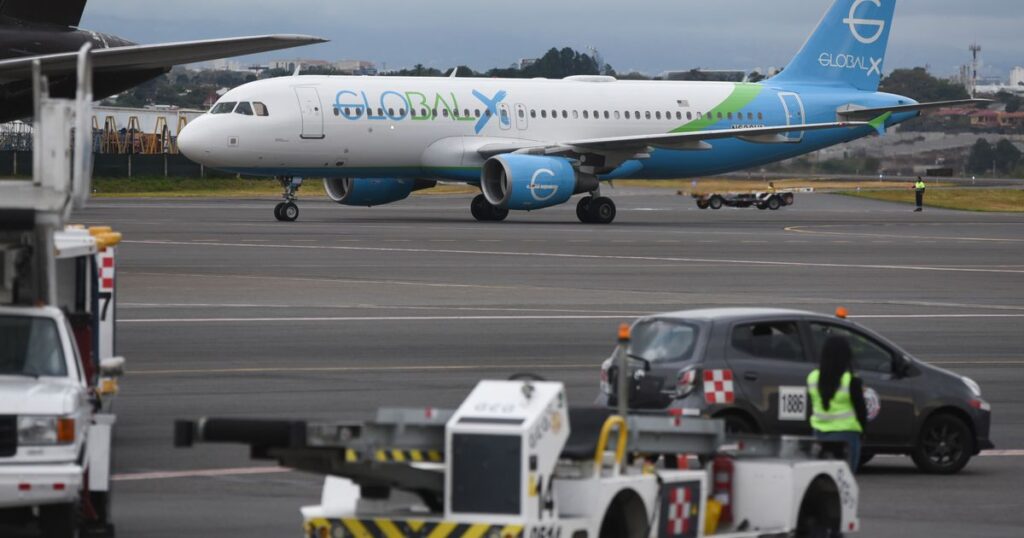MEXICO CITY (AP) — A group of human rights lawyers is suing Costa Rica, alleging the Central American nation violated the rights of dozens of migrant children by detaining them in a rural camp for nearly two months after they were deported from the U.S. in February.
The children, some as young as 2, are part of a group of hundreds of migrants from mostly Asian countries — Afghanistan, China, Russia and others — who were deported from the U.S. as part of a wider effort by the Trump administration to ramp up deportations.
Many had hoped to seek asylum in the U.S. and expressed fear over returning to their own countries. Instead, they were dropped in Costa Rica and Panama, where they don’t speak the local language. The countries were originally intended as a kind of deportation layover, but the migrants have now spent 50 days in limbo.
Critics described it as a way for the U.S. to export its deportation process, while human rights groups have warned that the two countries were turning into a “black hole” for deportees.
In Costa Rica, around 200 migrants, 81 of them children, were driven out to a rural migrant processing center along the Costa Rica-Panama border and detained in a former factory building.
The lawsuit from the Global Strategic Litigation Council and other human right groups was filed before the U.N. committee that monitors the implementation of the Convention on the Rights of the Child on Thursday night, and alleges that Costa Rica violated the convention.
Silvia Serna Roman, one of the attorneys filing the suit, said the migrants were held in detention without legal status, with no access to educational services or mental health services in their native language. It has fueled concern the long-term impacts that extended detention could have on the children as many parents have reported their children appearing isolated or sad.
“The kids are in a very crucial part of their development, and they are all fleeing complicated contexts in their countries. And now they’re subjected to detention for different, but long periods of time and inhumane treatment,” Serna Roman said Friday. “The parents are concerned.”
Serna Roman said migrants have had little access to legal counsel. The Costa Rican government has said migrants could leave the detention facility if they agree to return to their countries of origin or seek asylum in Costa Rica.
But the lawyer said many families fear they would have nowhere to go and potentially end up on the street, so they’ve remained in “indefinite detention” in the facility known as CATEM.
“Many people are afraid to leave CATEM because at least it means shelter, means three meals a day, means a roof over their heads,” Serna Roman said. “The Costa Rican government hasn’t been upfront about how they plan to further protect these people.”
The Associated Press has repeatedly been denied access to the detention facility since the migrants arrived, but when journalists visited the camp in 2023, families were sleeping on cardboard or in tents on the ground where some say liquid from portable toilets leaks with sparse food.
Costa Rican officials have disputed reports by the country’s Ombudsman’s Office that the deportees arrived in Costa Rica in visible distress and that authorities failed to guarantee proper conditions for arriving deportees.
Costa Rican President Rodrigo Chaves said in February that in accepting the Asian migrants, his country was “helping the economically powerful brother to the north.”
The suit by GSLC and local human rights groups is just the latest in a number of legal fights that have popped up surrounding deportees sent to Central American countries. The same group of lawyers filed a similar case against Panama, which was holding migrants in hotels and in remote camps near the Darien Gap, where deportees said they were stripped of their phones. Sharp criticisms prompted the Panamanian government to release the migrants on the streets of Panama City last month, leaving many migrants to fend for themselves.
Most recently, the deportation of groups of Venezuelan migrants and an American citizen to El Salvador, where they have been held in a high security prison for gangs, with little evidence to support alleged gang affiliations has also fueled legal battles and fierce political fights.

